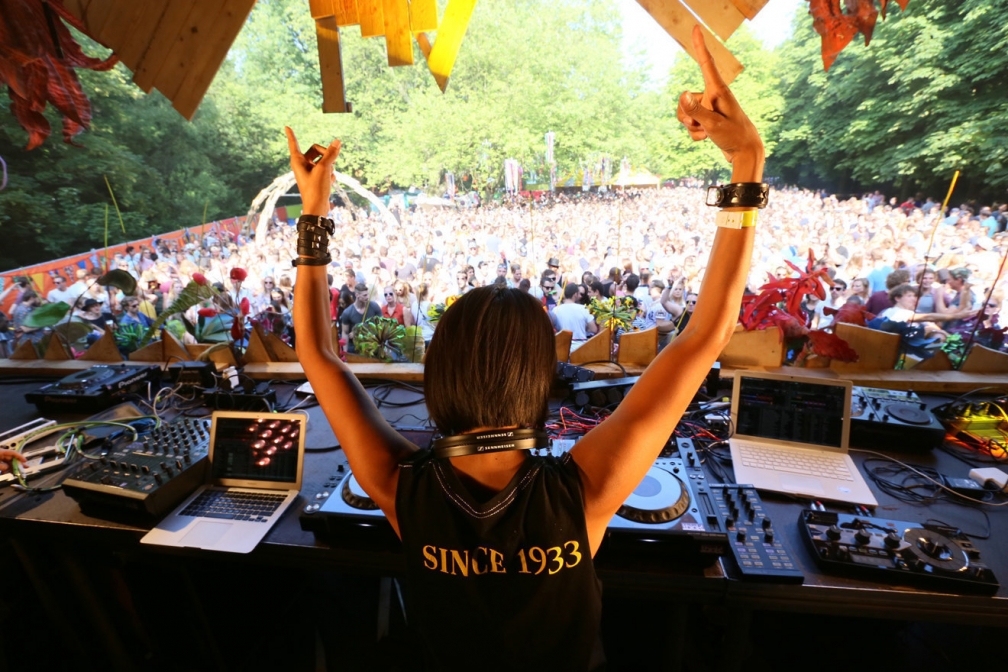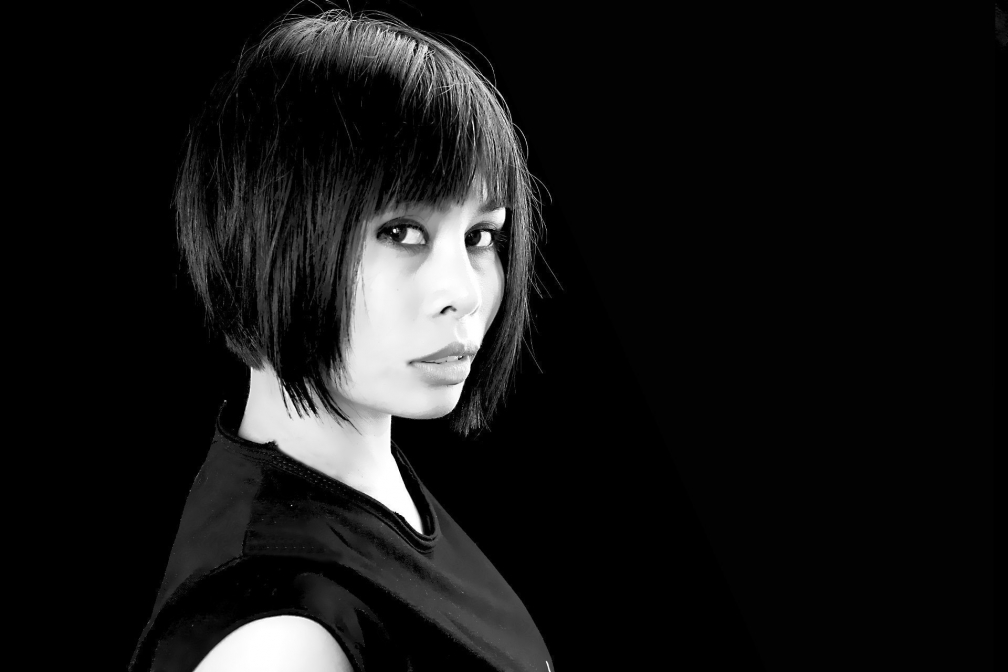
Nakadia
From the impoverished countryside of Thailand's Isaan province to global dance music icon, this is the story of Nakadia
Techno changed Nakadia’s life.
It all began one night in Germany. A friend was going to a techno club and invited a very young Nakadia, who was there in 2002 on a modeling assignment, to join him. It was there that Nakadia, a country girl who until then lived in the poor Thai province of Issan, heard techno for the first time. She was immediately drawn to it by its hypnotic drive, its pulsating basslines and the effect it had on the people the surrounded her on the dance floor.
She went back to Thailand with a new purpose, an enlightened perspective and an insatiable appetite for music. But after a few years of playing gigs in Bangkok and beyond, Nakadia wasn’t satisfied and opted for something she couldn’t get in Thailand – international exposure.
Now she’s based out of Berlin and is club trotting her way around the globe. In fact she’s played over 1,200 gigs in 60 countries to date. But for a while she still had something to prove. Criticism in the music industry runs far too rampant today and she’s had to make some changes to her approach but hidden beneath her lighthearted demeanor and her boisterous personality and is a brave and humble soul with an abundance of musical talent and a profound love for what she does.
And with that Nakadia has earned her spot among the techno’s elites, even going so far as being feted by Sven Vath, a relationship that was solidified by reoccurring gigs together in Thailand. She become a bastion of Thailand’s electronic music community and represents the flourishing scene in Thailand when she’s abroad. As she prepares to return to her motherland, likely to escape a brutal Berlin winter, we caught up with her to chat about the trials and tribulations that come with not just surviving but conquering the often vicious international dance music industry.
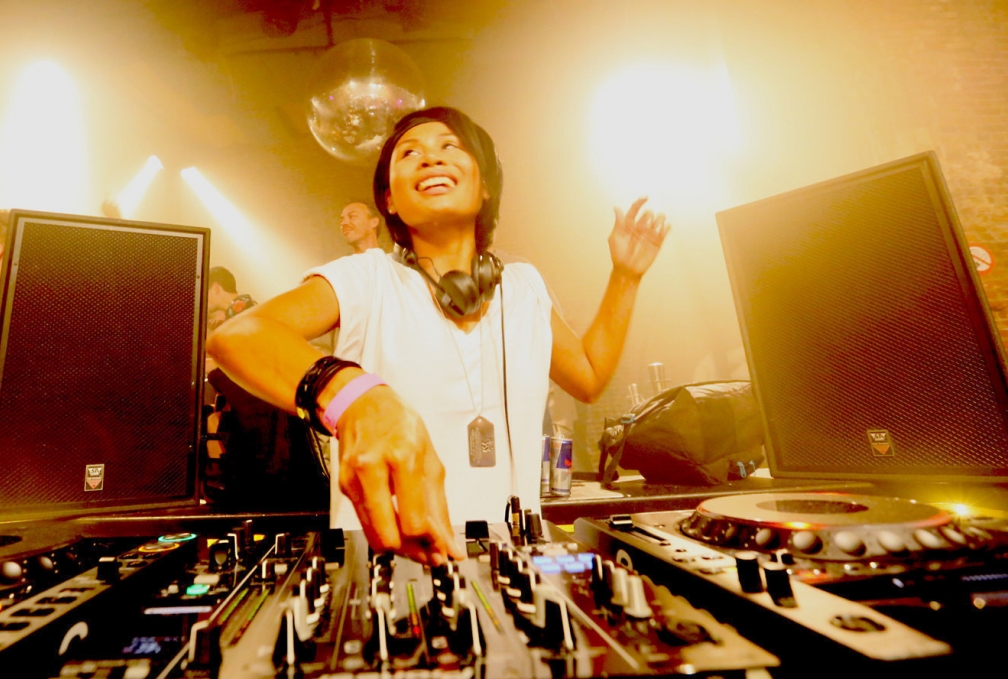
Tell us a bit about your life before DJing? What kind of jobs did you have?
I started working when I was 15 and I did many jobs, mostly in factories. Packing food, manufacturing dishes and checking hard discs at the Seagate factory. The last years before my DJ career I worked at several shops in the mall and at an Internet cafe.
What’s the longest DJ set you’ve ever played?
Earlier this year in Budapest I was booked together with Matador from Drumcode. He missed his plane so I had the chance to play all night – a six hour set. In Thailand I often play 5-6 hours as well at my own parties.
What would you credit as being the life changing moment in your career?
In August of 2014, Ushuaïa Ibiza gave me the main playtime at ANTS. Playing two hours at the biggest and most popular event on Ibiza in front of 8,000 people, live broadcasted on Ibiza Sonica radio – that really changed my career.
Most DJs tell stories of being immersed in homes and environment rich with music from a very young age and credit their wealth of musical knowledge to that. For you this was not the case at all having almost no access to it. What did you have to do to make up for that?
It was hard work. I did not know anything about music, I just loved it. When I practiced DJing 2013 I was behind the turntables 14 hours every day and for three months nonstop without a break. That was just the technical side. The musical side I learned just by touring. My first year as a DJ I already played 50 gigs in 10 countries and from this I learned the most. The experience that you get on tour and playing in different countries is something very important that nobody can teach you. So far I played over 1200 performances in 60 countries. Later I also learned a lot by living in Berlin and meeting all these great artists here and I am still developing day by day – it never ends.
What was the hardest obstacle you had to overcome in breaking out of Thailand?
The German embassy! I had my bookings in Europe and I had my place to stay in Berlin. It was just the German embassy that tried to keep me out of Europe. At one point they even blocked me from any European country, treating me like a criminal. That was when the foreign ministry from Berlin stepped in and put them in place. They made sure I got my visa and later they helped me to get a resident permit in Berlin so that I would not have to deal with that embassy again.
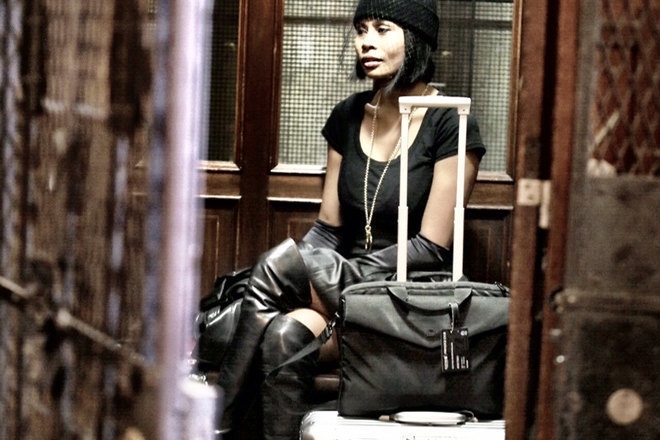
What’s been your reality when it comes to being an attractive female in the music industry? Do you find that it’s awarded you with more opportunities or less?
In the techno scene it was not easy to get accepted as a girl – especially a Thai girl. People always thought that girls don’t understand techno and that a Thai can never be as good as a European. With every gig I had to prove myself. As a newcomer DJ you have to stand out to be noticed, so by being a girl I got noticed and then I got booked because I managed to impress. Every gig I played I made more fans and after every set I always got more booking requests. Like a snowball that is growing bigger, it took me 1200 gigs to get where I am today. Most DJs get successful with a hit or releases on big labels. My career is very different – it is based on my performances. People in the business say this is why my career is more stable than others and keeps growing all the time.
You’ve developed a very close relationship with Sven Väth, what would you say is the most unsuspecting thing that you’ve learned from him?
A very important thing – he taught me how to live healty, how to eat and drink wise so that I can keep up with the hard DJ life. Sven is not only a master at DJing, he is also a very smart person and business man. I learned a lot from him and the way how he lives his life. He is my idol in every way.
After Sven Väth, who are some other DJs that you would like to personally welcome to Thailand to play with you?
Some of the artists I would love to bring would be Maceo Plex or Tale of Us. But I am also excited about the new generation of amazing talent like Ran Salmann or Agents of Time. You can hear some tracks of them on my mix. They are amazing artists that will be the headliners of tomorrow.
What’s the most special place in Thailand that you think people should see?
I don’t know about that one special place but the nature of Thailand is just amazing. We really have some of the most beautiful places of the world both in the south as also in the north. It’s hard to recommend something specific as I havent even seen the beauty of the Krabi area myself.
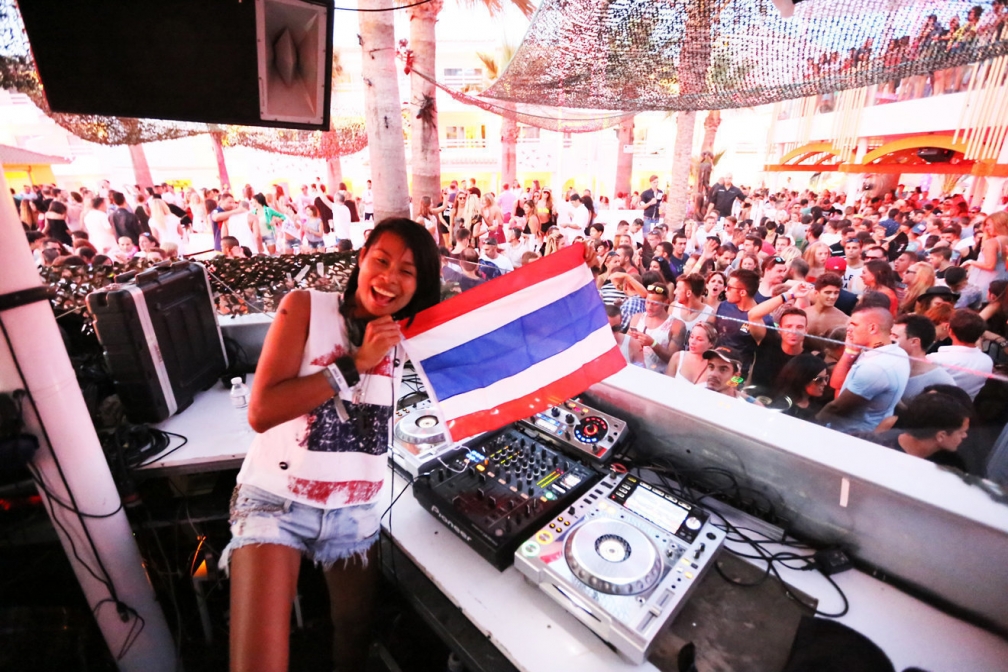
What’s the hardest lesson you’ve had to learn about the music industry?
That some people think they can make success in their career by bringing others down by backstabbing, lying and faking. I have learned some hard lessons that I thought would be impossible in this business.
What was the harshest culture shock you experienced after moving abroad?
It’s not a shock, but what struck me the most was the way how Europeans respect the world around them. Especially nature and animals – that impressed me. I did not know this from Thailand and this also changed the way how I respect the world around me now.
What five tracks are you playing the most right now?
Ade by Carlo Ruez and Wigbert
Synchrotonic by Petar Dundov
Obsidian by Agents of time
Anamnesis by Ran Salman
Luminance by Alex Niggemann
What’s been the most beautiful moment in your career as a DJ?
When I handed over the decks to Sven Väth last year on Koh Samui. That was a moment I have been waiting for many years – hosting my idol at my “home” on Koh Samui.
How would you describe Berlin to someone who has never been?
Like the major of Berlin said before: poor but sexy. The city has nothing but government and culture, so artists from every corner of the world live here and make the city what it is. It’s unique and has to be experienced. But better not in the winter!
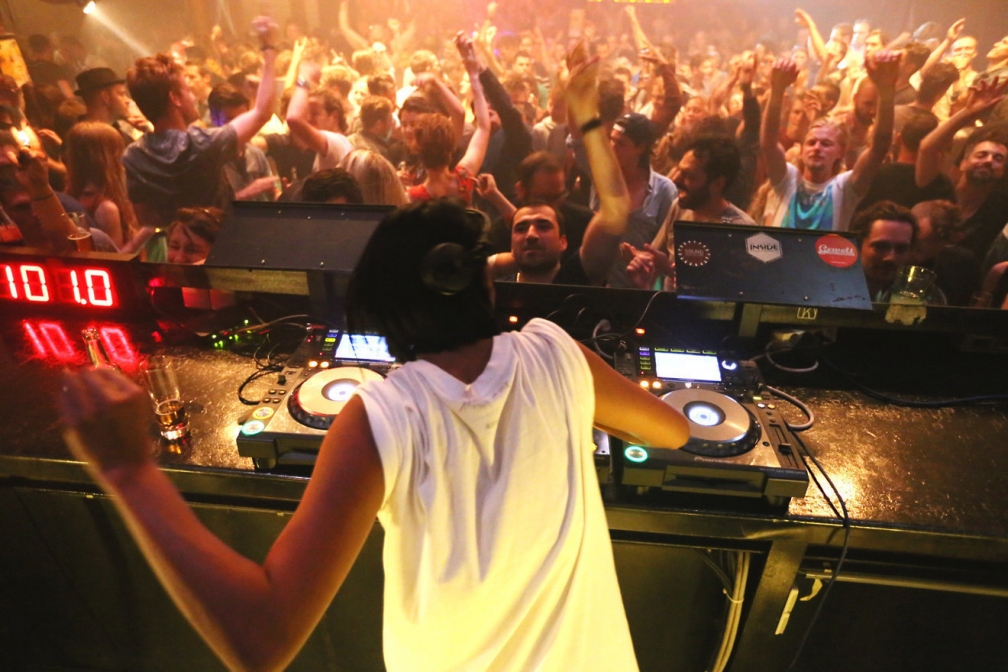
You’re living in Berlin full-time now and you went there to further your music career. As an underground music DJ, does that mean you feel it’s impossible to gain exposure and make it big by staying in Asia?
We live in a time where music is very short living. It is so short living that bookers and club managers can not keep up anymore. There are too many DJs, too many producers and too many labels. What is hot today is forgotten tomorrow. A few years ago you made it once you had a top 10 track on Beatport. Today I know many producers that have top 10 entries all the time but no bookings. It all became too much for the scene to keep track. Today the bookers in Europe only book what the big agencies tell them to book, or the artists that they personally know. That’s why it is so important to be where the people from the industry hang out: Berlin, London or Barcelona. Meeting people and showing your face has become more important than producing.
What can other local Thai DJs do improve their chances of making it internationally?
Like mentioned before – a hit always helps, but for more bookings you have to meet the people in charge. There is a chance for Thais to be discovered the way it happened to me because many music industry people like to come on holiday to Thailand. This is how I started my international career – they saw me play on Samui and booked me to their clubs.
What do you think is the most important thing you’ve learned about the music industry that you didn’t know until you left Thailand?
I have to say that I learned all after leaving Thailand. Playing in Thailand is fun, but it has not much to do with the world of the (electronic) music industry. It’s a really serious business that turns over huge amounts of money. I always saw my DJing as fun and a nice way to make a living. But if you enter the music industry in a professional way, you find out that it is hard work – around the clock, day after day, nonstop. The moment you take a break, you are gone.
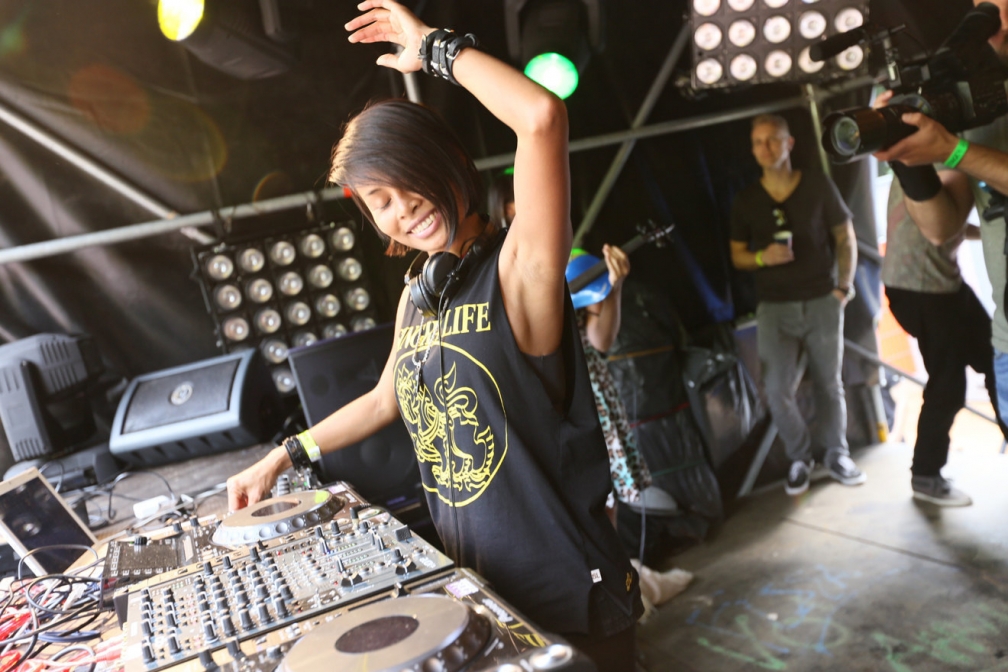
What do you think Thailand can do to progress its underground music scene? What’s missing here right now?
Thailand has already developed very far over the past years. When I started DJing there was no scene at all. Now we have amazing events all the time and great local talent. I think all is going the right way and not much is missing. Of course EDM has a huge amount of followers, but more and more Thais start to find out that there is also a different electronic music – a cool one. Many Thais have an artistic gene, look at all the musicians in bands, the painters, tattoo artists, fashion designers – Thailand has millions of people that feel in an artistic way. They just did not discover the art of electronic music yet. But similar to my career – it is growing with every party and every local Dj that is bringing more friends into the scene. I can see it at all my gigs – the new faces that need one hour until they get techno, but then they start to love it.
You’ve discussed in interviews that producing doesn’t come as easily for you as DJing so why do you keep at it? Do you feel that producing is that important of a skill for DJs?
Today it’s a part of the job. Not only to release tracks and get your name out there but also to understand the music that you are playing. Every day I work on my Ableton, not because I have to but because I love to learn more and progress with my music. To be a good producer takes many years. I am still a baby producer and I still need a lot of help, but I do it because I love to do it.
What’s the first thing you want to do in Thailand when you step off the plane?
Going to 7/11 and getting all the things I can not get in Europe – and then calling my mother.
